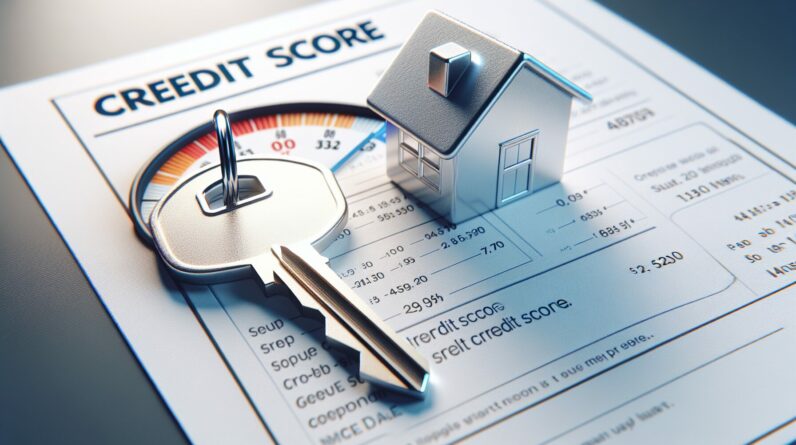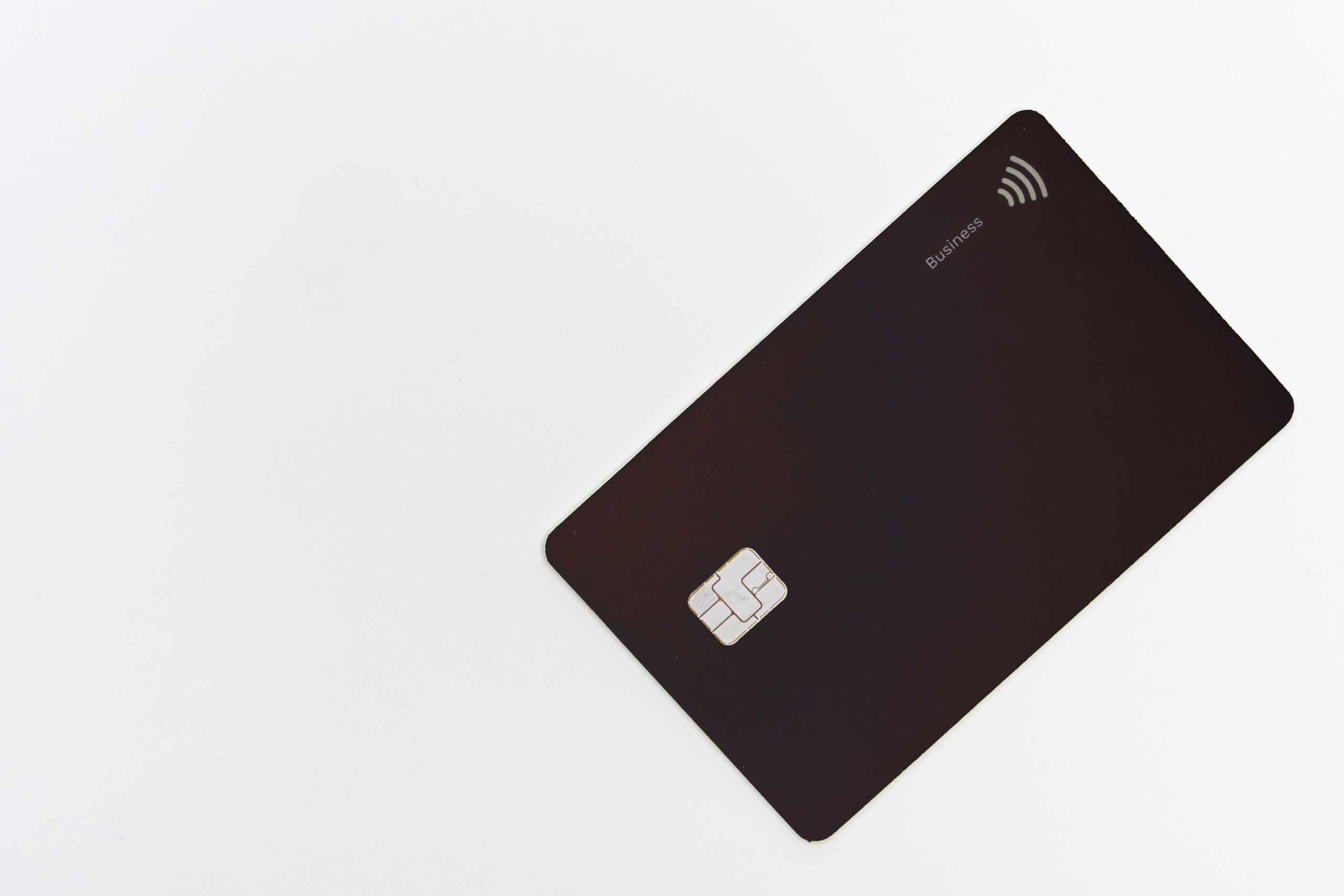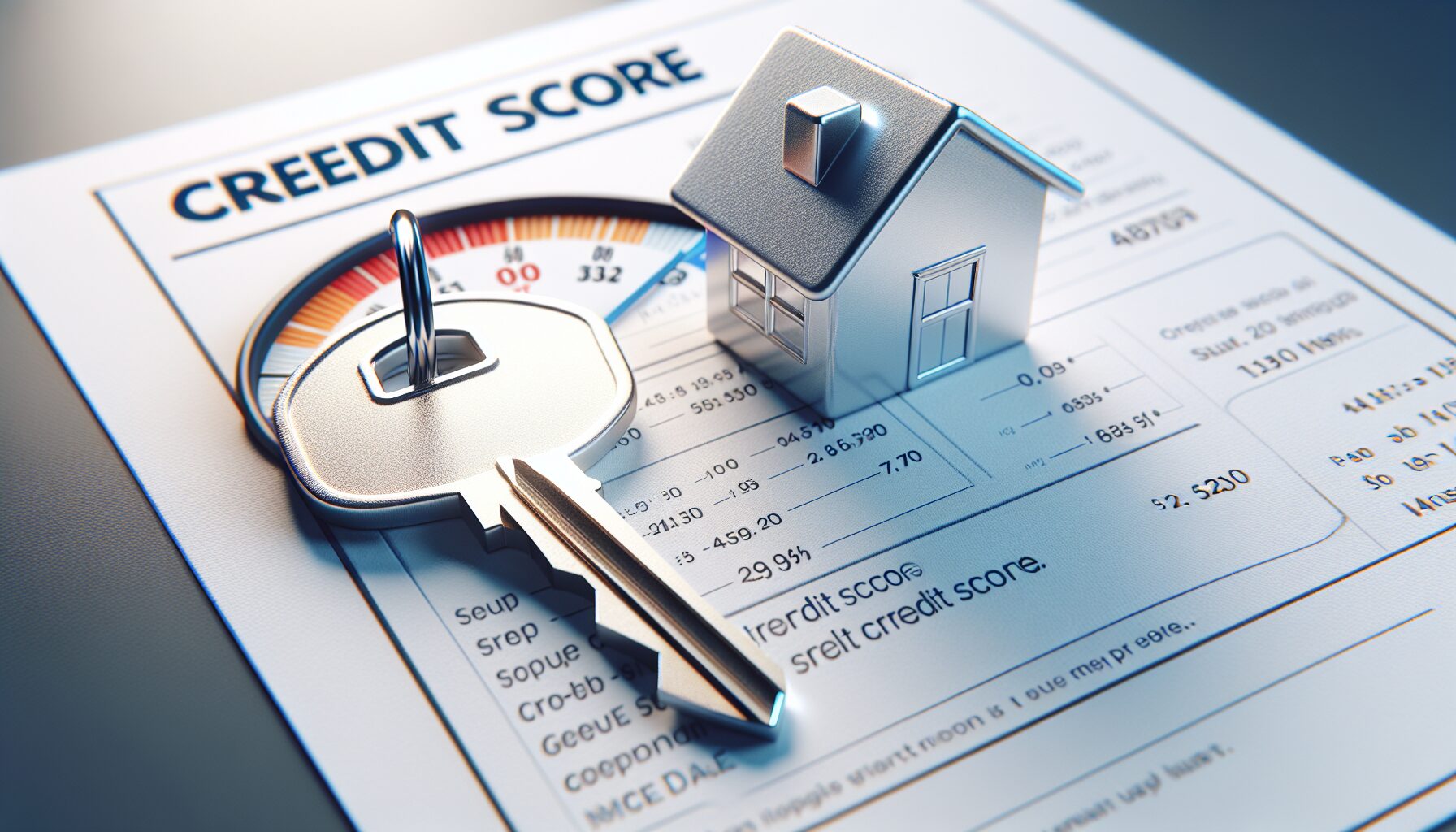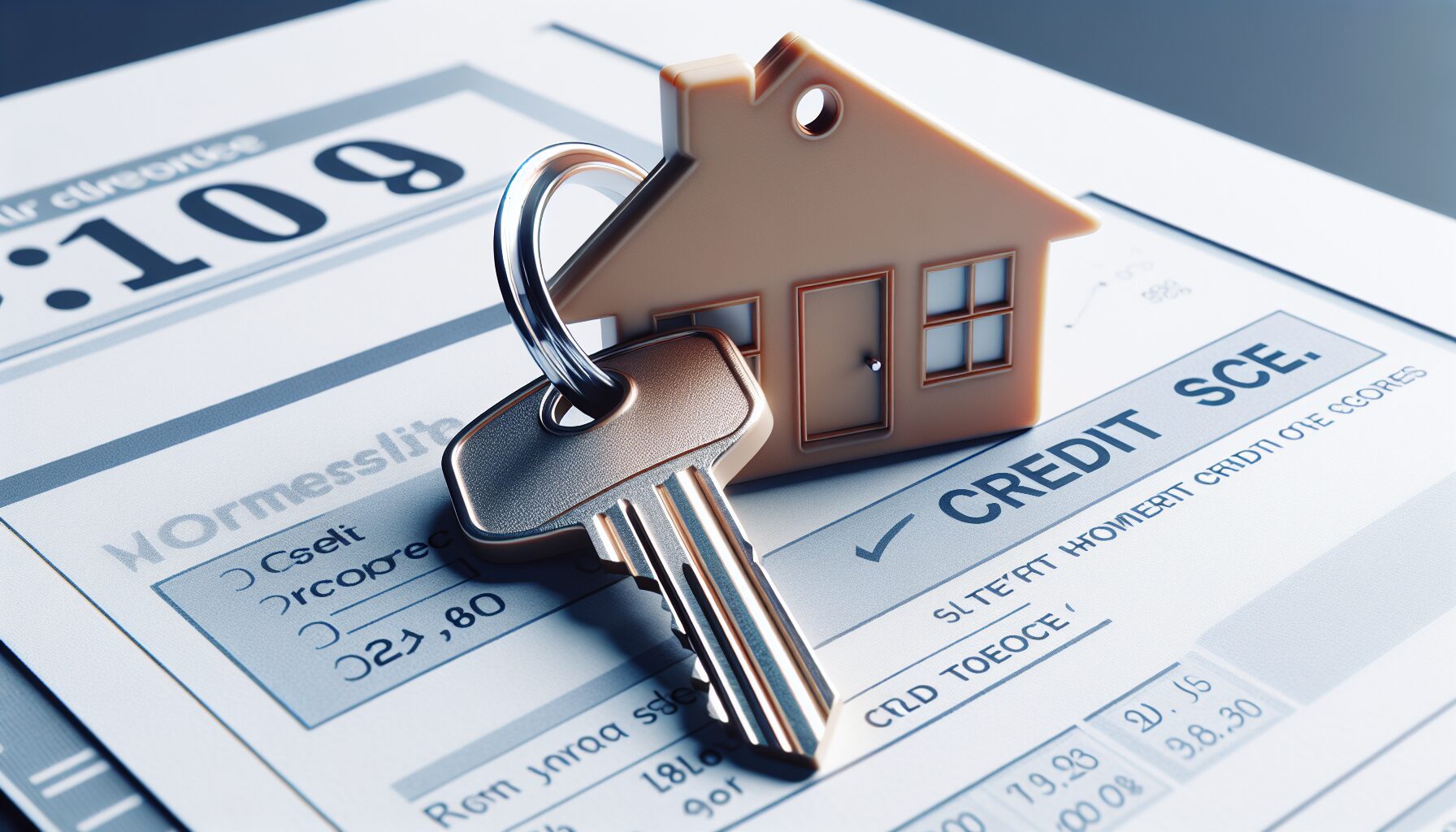
So you’ve got your sights set on buying a house, but you’re wondering if your credit score of 750 is good enough. Well, you’re in luck! In this article, we’ll explore whether a credit score of 750 is considered strong enough to secure a mortgage and make your dream of owning a home a reality. Whether you’re a first-time homebuyer or looking to upgrade to a larger space, it’s crucial to understand where your credit score stands in the eyes of lenders, and we’re here to shed some light on the matter. So let’s get started and find out if 750 is indeed a good credit score to buy a house!
Table of Contents
Factors to Consider When Buying a House
Credit Score Requirement
One of the most important factors to consider when buying a house is your credit score. Lenders use credit scores as a way to determine your creditworthiness. Your credit score is a number that represents your credit history and your ability to make payments on time. Different lenders may have different credit score requirements, but generally, a higher credit score will make it easier to qualify for a mortgage loan. It’s a good idea to check your credit score before beginning the homebuying process so you can have a better understanding of where you stand.
Down Payment
Another factor to consider is the down payment. The down payment is the amount of money you pay upfront when purchasing a house. Typically, the higher your down payment, the more favorable your loan terms will be. A larger down payment can also help you secure a lower interest rate on your mortgage. It’s important to evaluate your financial situation and determine how much you can comfortably put towards a down payment.
Debt-to-Income Ratio
Your debt-to-income ratio is a measure of the amount of debt you have compared to your income. Lenders consider this ratio when determining whether to approve your mortgage application. If you have a high amount of debt in relation to your income, it may be more difficult to qualify for a loan. It’s a good idea to try to lower your debt-to-income ratio before applying for a mortgage.
Loan Options
There are various loan options available for homebuyers, and it’s important to explore and understand them. Some common types of loans include conventional loans, FHA loans, VA loans, and USDA loans. Each loan program has its own requirements and benefits. It’s helpful to speak with a mortgage professional to determine which loan option is best for your specific situation.
Interest Rates
Interest rates play a significant role in how much you will ultimately pay for your home. A lower interest rate can save you thousands of dollars over the life of your loan. Your credit score, down payment, and loan program can all impact the interest rate you are offered. It’s important to compare interest rates from different lenders and choose the option that offers the most favorable terms.
Understanding Credit Scores
Types of Credit Scores
There are several different types of credit scores, but the most commonly used is the FICO score. The FICO score is a three-digit number that ranges from 300 to 850. It is calculated based on information from your credit report. Other types of credit scores include VantageScore and TransUnion score. Each scoring model may have slightly different criteria, but they all aim to measure your creditworthiness.
Credit Score Ranges
Credit scores are typically categorized into ranges, which help lenders assess the risk associated with lending to individuals. The ranges may vary slightly depending on the scoring model used, but generally, credit scores can be classified as poor (300-579), fair (580-669), good (670-739), very good (740-799), or excellent (800-850). A good credit score is generally considered to be in the range of 670-739.
Importance of Credit Scores
Credit scores are important because they provide lenders with a quick way to assess an individual’s creditworthiness. Lenders use credit scores to determine the likelihood of a borrower making their loan payments on time. A higher credit score indicates a lower risk for the lender, resulting in more favorable loan terms for the borrower, such as lower interest rates and better loan options.

What Is a Good Credit Score?
Credit Score Ranges
As previously mentioned, credit scores are typically categorized into ranges. A good credit score usually falls in the range of 670-739, but it’s important to note that different lenders may have different definitions of what is considered good. Some lenders may consider a score of 700 or higher to be good, while others may lower the threshold to 660. It’s important to know the credit score requirement of the specific lender you are working with.
Impact on Mortgage Approval
Your credit score can significantly impact your ability to get approved for a mortgage. Lenders typically have minimum credit score requirements that borrowers must meet in order to qualify for a loan. If your credit score does not meet the lender’s requirements, it may be more difficult to obtain a mortgage. Additionally, a lower credit score may result in higher interest rates and less favorable loan terms.
Benefits of a Good Credit Score
Having a good credit score can provide several benefits when buying a house. Firstly, it increases the likelihood of getting approved for a mortgage loan. Secondly, a good credit score can help secure lower interest rates, saving you money over the life of the loan. Additionally, a good credit score may give you access to a wider range of loan options, providing more flexibility in choosing the right mortgage program for your needs.
The Importance of Credit Score in Homebuying
Mortgage Eligibility
Credit scores play a crucial role in determining your eligibility for a mortgage. Lenders use credit scores as an indicator of your ability to handle debt responsibly. A higher credit score demonstrates a history of making payments on time and managing credit well, making you a more attractive borrower. Meeting a lender’s credit score requirement is often a prerequisite for obtaining a mortgage loan.
Lower Interest Rates
One of the biggest advantages of having a good credit score when buying a house is the potential for lower interest rates. Lenders are more likely to offer lower interest rates to borrowers with higher credit scores. This means that with a good credit score, you can save a significant amount of money over the life of your mortgage loan.
Flexible Loan Terms
Having a good credit score can also open up more options for loan programs and terms. Lenders may be more willing to provide flexible loan terms, such as a lower down payment requirement or a longer repayment period, for borrowers with good credit scores. This can make the homebuying process more manageable and affordable.

750 Credit Score: Is It Good Enough?
What a 750 Credit Score Means
A credit score of 750 is considered to be very good. It falls within the “very good” range and demonstrates responsible credit management. With a 750 credit score, you are likely to be seen as a low-risk borrower by lenders, which can work in your favor when applying for a mortgage.
Minimum Credit Score Requirements
While a credit score of 750 is generally considered to be very good, it’s important to note that different lenders may have different minimum score requirements. Some lenders may require a higher credit score, while others may be more flexible. It’s always a good idea to check with your chosen lender to understand their specific credit score requirements.
Advantages of a 750 Credit Score
Having a credit score of 750 can provide several advantages when buying a house. Firstly, it increases your chances of mortgage approval, as lenders view a higher credit score as a sign of responsible financial behavior. Secondly, a 750 credit score may qualify you for lower interest rates, potentially saving you thousands of dollars over the life of your loan. Lastly, with a 750 credit score, you may have access to more loan options and more favorable loan terms.
Factors Beyond Credit Score
Down Payment
In addition to credit score, the down payment is an important factor to consider when buying a house. A larger down payment can help offset a lower credit score and increase your chances of getting approved for a mortgage. It can also lead to more favorable loan terms, such as a lower interest rate. Saving for a larger down payment can be a smart strategy if you have a lower credit score.
Debt-to-Income Ratio
Your debt-to-income ratio is another factor that lenders consider when evaluating your mortgage application. This ratio compares your monthly debt payments to your gross monthly income. A lower debt-to-income ratio demonstrates that you have a healthier financial situation and are less likely to default on your mortgage payments. Even if you have a lower credit score, a low debt-to-income ratio can increase your chances of mortgage approval.

Improving Your Credit Score
Pay Bills on Time
One of the most effective ways to improve your credit score is to consistently pay your bills on time. Late payments can have a negative impact on your credit score, so it’s important to make sure all of your bills, including credit card payments, are paid by their due dates. Set up automatic payments or reminders to ensure you never miss a payment.
Reduce Outstanding Debt
Another way to improve your credit score is to reduce your outstanding debt. Paying down credit card balances and other loans can help lower your overall credit utilization ratio and improve your credit score. It may take time, but reducing your debt can have a positive impact on your creditworthiness.
Avoid New Credit Applications
When you apply for new credit, such as a credit card or loan, it can result in a hard inquiry on your credit report, which can temporarily lower your credit score. To avoid unnecessary credit inquiries, refrain from opening new credit accounts unless absolutely necessary. Focus on maintaining your existing credit accounts and keeping your balances low.
Alternative Options for Lower Credit Scores
FHA Loans
For individuals with lower credit scores, FHA loans can be a viable option. These loans are insured by the Federal Housing Administration and typically have more lenient credit score requirements compared to conventional loans. FHA loans may be an attractive choice for first-time homebuyers or those who have difficulty qualifying for a conventional mortgage.
VA Loans
VA loans are specifically designed for veterans, active-duty military members, and their families. These loans are guaranteed by the Department of Veterans Affairs and often have more flexible credit score requirements. VA loans can be an excellent option for eligible borrowers with lower credit scores, as they offer competitive interest rates and favorable loan terms.
USDA Loans
USDA loans are available for individuals looking to purchase homes in rural areas. These loans are guaranteed by the U.S. Department of Agriculture and often have more lenient credit score requirements. USDA loans can be a great option for homebuyers with lower credit scores and limited funds for a down payment.

Working with a Mortgage Professional
Credit Counseling
If you’re unsure about your credit situation or need guidance on improving your credit score, consider working with a credit counselor. A credit counselor can help you understand your credit report, identify areas for improvement, and create a plan to boost your credit score. They can also provide advice on managing debt and improving your overall financial health.
Loan Pre-Approval
Before you start house hunting, it’s a good idea to get pre-approved for a mortgage. This involves providing financial information to a lender who will then determine the loan amount you qualify for. Pre-approval gives you a clear idea of your budget and makes you a more competitive buyer when submitting offers. It also shows sellers that you are serious about buying and have the financial capacity to do so.
Finding the Right Loan Program
Navigating the mortgage process can be complex, especially if you have a lower credit score. Working with a mortgage professional can help you understand the various loan programs available to you and guide you through the application process. They can help you find the right loan program that aligns with your financial goals and credit situation.
Conclusion
When buying a house, your credit score is a crucial factor to consider. It can impact your mortgage eligibility, interest rates, and loan options. While a credit score of 750 is generally considered to be very good and can provide several advantages, it’s important to keep in mind that different lenders may have different credit score requirements. Additionally, other factors such as down payment and debt-to-income ratio also play a role in the homebuying process. By understanding the importance of credit scores, taking steps to improve your score if needed, and exploring alternative loan options, you can make informed decisions and increase your chances of securing a favorable mortgage loan. Working with a mortgage professional can further assist you in navigating the homebuying process and finding the right loan program for your needs.


